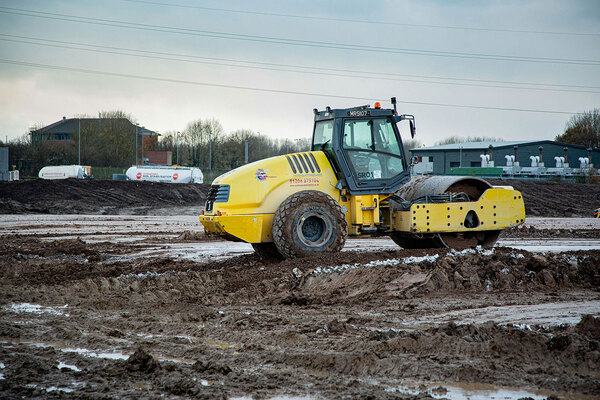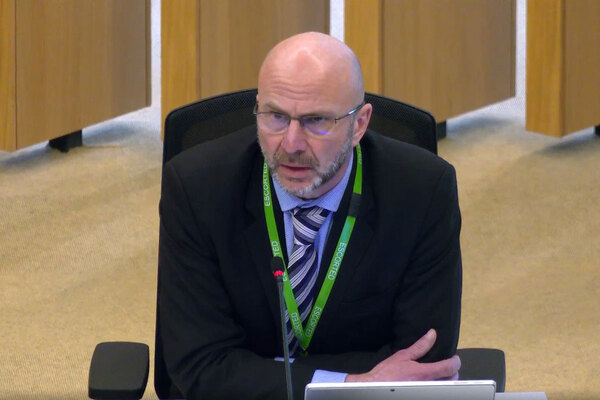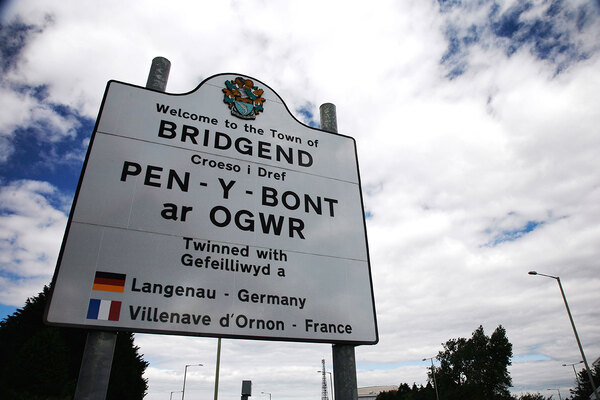You are viewing 1 of your 1 free articles
19,000 homes stalled over lack of wastewater capacity in Northern Ireland
Around 19,000 homes in Northern Ireland are unable to proceed because of a lack of wastewater capacity, the body representing the country’s construction industry has said.
The total was revealed ahead of a Northern Ireland Assembly debate on Monday about challenges facing Northern Ireland Water.
Mark Spence, chief executive of the Construction Employers Federation (CEF), said a survey of its house builders “has made clear that current wastewater capacity constraints are holding up some 8,450 homes, equating to just under £1bn of investment”.
“As we understand it, when coupled with the proposals of housing associations and other developers, approximately 19,000 homes are today unable to proceed,” he said.
The debate was on a motion from the Ulster Unionist Party (UUP) calling for a review of Northern Ireland Water, the main water company in the country, which could involve mutualisation.
This would mean changing Northern Ireland Water from a government-owned company to one owned by customers.
However, John O’Dowd, the minister for infrastructure, ruled mutualisation out.
Opening the debate, Mike Nesbitt, a UUP MLA, said the state of Northern Ireland’s water infrastructure was a “pressing issue” that “demands urgent attention”.
“I believe we’re facing a crisis, one that requires action in terms of strategic investment, policy reform and changes to governance,” he said.
“Our water and sewerage network is ageing, to say the least. Over a third of pipes are more than 100 years old. The result is leakage rates which exceed 25%.”
He said the impacts of underfunding were “both profound and far-reaching”.
“We face limitations in providing new water and sewerage connections, both for households and commercial development, and that leads to construction delays and stalled projects.
“In turn, that is going to restrict economic growth and result in missed investment opportunities, which may tarnish our reputation and make Northern Ireland less attractive for inward investment.”
Mr Nesbitt said the impact of the infrastructure deficit on housing “is perhaps one of the most damaging outcomes of the historical lack of leadership and funding surrounding our water and sewerage management”.
“It’s widely accepted we face a housing shortfall that places tens of thousands of families across Northern Ireland in crisis.
“It is simply a case that there is a growing number of planning applications going before local council planning offices that are approved but then are subject to agreement with Northern Ireland Water, and how costs for water and waste infrastructure are to be met,” he said.
Passing the costs to developers “creates serious issues, particularly in housing, both private and social”.
“The cost funding of water and waste infrastructure in new developments creates pressures on housing associations that can mean that whole social housing projects are scrapped because the funding to meet this additional cost is simply not there,” he said.
Ahead of the debate, Mr Spence said it was “crucial” that all parties “take the opportunity today to unite behind the motion and the need for a fundamental review of the governance and funding model of NI Water, with full consideration of options like mutualisation”.
“Without this, and in the clear context of the executive’s declining block grant capital expenditure, we are putting a major inhibitor on economic growth and also removing from an entire generation the prospect of a home to call their own,” he said.
However, Mr O’Dowd ruled charging households out as a solution to the problem.
He said: “Fundamentally, a mutual company requires a guaranteed and predictable funding stream which is not subject to direct political control or competing public sector priorities.
“Simply put, to achieve mutualisation would require charges to be paid by domestic water customers.”
The minister said the problem was “not how NI Water is governed”, but the level of public spending that is available to the executive to allocate to the organisation.
“This is a consequence of underfunding of public services in the North over many years.
“And I’m glad to say that, despite some comments made in the chamber today, all parties are united in engaging with the British government to resolve the issues.”
A DFI spokesperson said: “The department will be writing to CEF seeking further clarification from them about their internal survey and its published results.
“We are keen to understand how representative the findings are, and the methodology used.
“It’s important to fully understand all information available before reacting and setting a course to fulfil the desired objective.
“There is much to be achieved with the resources available, and that will require all stakeholders to work constructively and responsibly to achieve the maximum benefits possible in the constrained circumstances.
“This will include the construction industry and developers who play a hugely important role in our economy.
“In 2023-24 we invested over half a billion pounds of public money in water and sewerage infrastructure.
“NI Water is continuing to carry out significant improvements across the North. Investors need to know we are open for business.”
Towards the end of last month, Gordon Lyons, the new communities minister in Northern Ireland, said “we need to build more social homes to address growing housing stress”.
Sign up for our Northern Ireland bulletin
Already have an account? Click here to manage your newsletters












